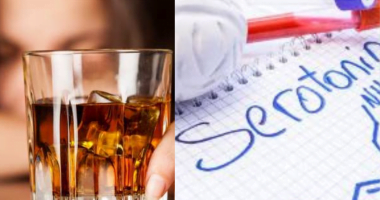You Are What You Eat: How Food Affects Our Mental Health – Have you ever noticed that your feelings change based on what you eat? Perhaps certain foods lift your spirits, making you feel energized, while others leave you feeling drained and unable to concentrate. Often, we associate diet with physical health, overlooking its impact on our mental well-being. But, eating well affects our mood too, and the phrase ‘you are what you eat’ is equally true for mental health as it is for physical health.
The Link Between Food and Mental Health
The strong connection between food and mental health comes from the intricate relationship known as the ‘gut-brain connection.’ Essentially, the gut and the brain are in constant communication, with the gut sending signals to the brain that regulate sleep, pain, appetite, mood, and emotional health.
The brain uses up 20% of your daily calorie intake, meaning the food you eat has a direct impact on brain function and structure. Therefore, the quality of the food you eat can either enhance or impair your brain health. This highlights the importance of a balanced diet in mental health strategies, which are often explored in MCHD-clinical mental health counseling programs.
How Does Food Affect Your Mental Health
Have you ever felt irritable or anxious and wondered why? Your diet could be to blame. The emerging field of nutritional psychiatry explores this link further to find out how diet and nutrition impact our mental health. Studies have shown that certain foods influence brain health and function.
Research also shows that although we may crave comfort foods when we’re feeling a bit down or stressed, they are more likely to worsen these feelings over time, after the temporary relief they provide has passed.
Foods to Avoid for Better Mental Health

- Processed Foods – Items like cold meats, fried foods, breakfast cereals, and pre-packaged meals can cause inflammation, increasing the risk of anxiety and depression.
- Refined Sugars – Although sugary snacks can give you a quick energy boost, it doesn’t last long and eating them regularly can affect and impair the body’s stress response.
- Trans Fats – these unsaturated fatty acids are found in fried foods and baked goods and if taken in high quantities can reduce serotonin production and increase inflammation which may lead to depression.
- Soda – This beverage has no nutritional value and is full of sugar, which detracts from its overall health value. Although fruit juices contain vitamins, these too, are full of hidden sugar.
- Coffee – While coffee can have certain health benefits, too much caffeine can make you feel jittery and disrupt your sleep habits. As with alcohol, it’s advisable to stick to the recommended dose.
- Alcohol – Drinking in moderation is vital as excessive consumption can have damaging effects on both mental and physical health, leading to more serious health issues.
The main thing to remember is that everything should be taken in moderation. You don’t need to completely cut out these foods from your diet if you don’t want to, but limiting them can significantly reduce health risks, both physical and mental.
What is the Best Diet for Mental Health
Eating a balanced diet rich in essential nutrients is important for maintaining mental health. The Mediterranean diet, which includes many of these nutrients, has gained popularity for its many health benefits. It’s full of whole grains, fruits, vegetables, and oily fish which support a healthier gut reducing the risk of depression.
Mood-Boosting Foods
Certain foods are especially beneficial for enhancing mood due to their nutrient density. These mood enhancers include zinc, folate, magnesium, potassium, vitamin C, fiber, iron, B vitamins, and omega-3 fatty acids. Incorporating the following foods into your eating plan can help boost your serotonin and dopamine levels, which are essential for mood balance, energy levels and clarity, helping to reduce feelings of anxiety and depression.
- Fruits and vegetables.
- Whole grains.
- Lean meats.
- Fish.
- Nuts and legumes.
- Low-fat dairy products.
- Olive oil.

Food and Brain Health
There are certain foods that are particularly good for brain health and memory function. These include:
- Blueberries – Loaded with antioxidants, they may help delay brain aging.
- Turmeric – Containing the compound curcumin, which is rich in antioxidants and anti-inflammatory properties, turmeric can improve memory function and prevent cognitive decline.
- Broccoli – A great source of vitamin K, which has been linked to improved memory.
- Pumpkin Seeds – These seeds are an excellent source of minerals vital for brain health, such as zinc, copper, magnesium, and iron.
- Oranges – The high levels of Vitamin C found in oranges help defend your brain against damage from free radicals. Other fruits high in vitamin C are kiwis, strawberries and blackcurrants.
- Green Tea – Contains caffeine to boost alertness, antioxidants to protect the brain and L-theanine which can help with relaxation.
Eating Habits and Mental Health
As well as eating the right foods and avoiding the wrong ones, consider adopting these eating habits to optimize the mental health connection:
- Eat Regularly – Maintaining consistent meal times helps stabilize your blood sugar levels. This avoids dips in energy that can leave you feeling tired and irritable.
- Stay Hydrated – Adequate hydration is essential as it influences your energy and concentration levels. Being dehydrated can negatively affect your mood and leave you feeling tired.
- Share Meal Times – Dining with others is not just good for digestion, it also has social and psychological benefits. Regularly sitting down to share meals creates a sense of connection and can boost your mood.
- Maintain a Healthy Sleep Pattern – Good sleep hygiene directly affects your dietary choices, influencing your likelihood of craving energy drinks and processed foods. Ensuring you get enough rest can help you make healthier daily food choices.
It’s clear the foods we choose have a vital role in mental well-being. Adopting a balanced diet such as the Mediterranean and maintaining healthy eating habits can reduce mental health issues. Through disciplines like nutritional psychiatry, we are starting to understand the deep connections between food and mental health. This allows us to put strategies in place and change our approach to eating, leading the way to a healthier, more fulfilling life.
Continue to check our website for more articles of this kind. And, please use our comment section as well, we would love to hear from you.










